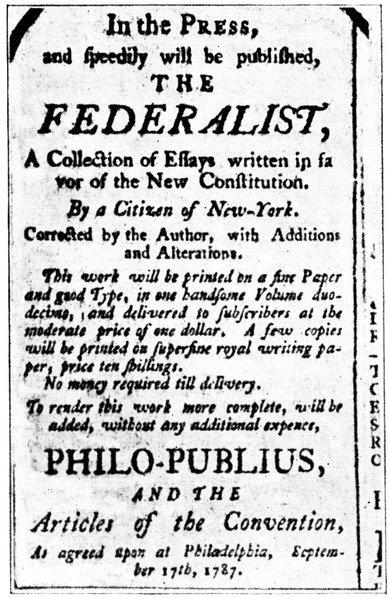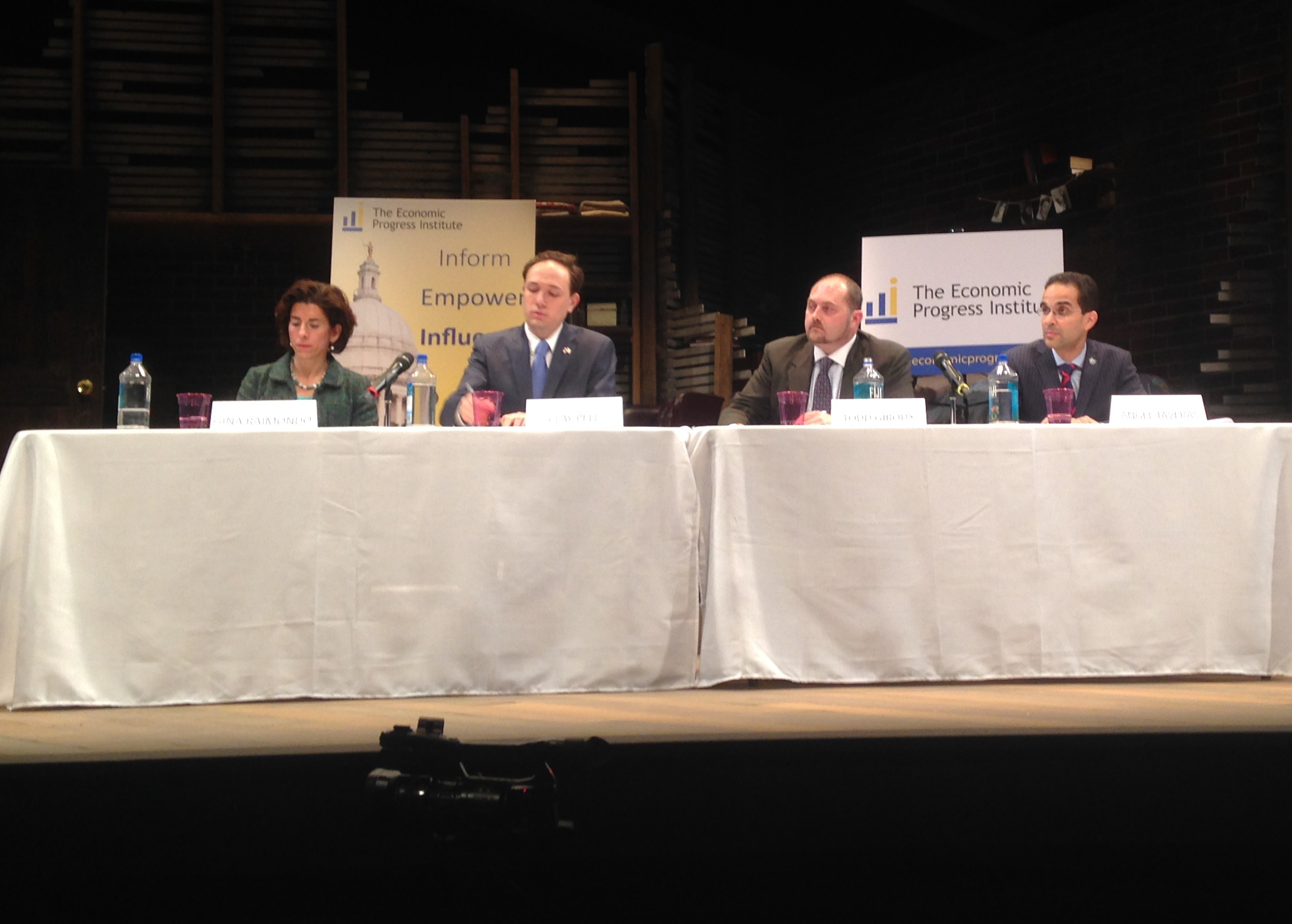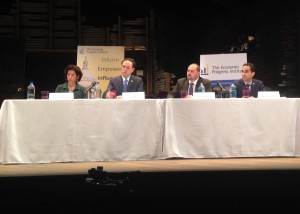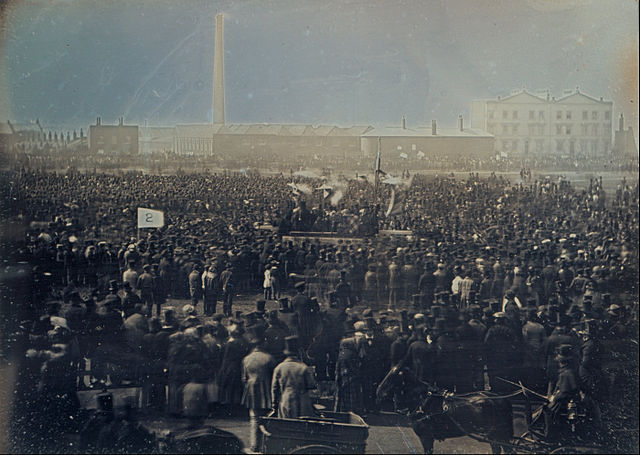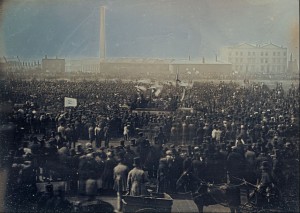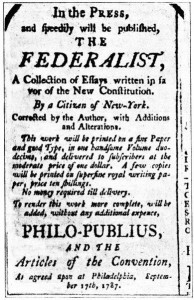 The ACLU of Rhode Island today filed a federal lawsuit to prevent the Smithfield Police Department from continuing to enforce an overly broad state law that makes it a crime to circulate anonymous political literature, including unsigned newspaper editorials. The statute, which carries a potential one-year prison sentence, unconstitutionally bars the distribution of any anonymous political literature that relates to ballot questions or that criticizes a political candidate’s “personal character or political action.”
The ACLU of Rhode Island today filed a federal lawsuit to prevent the Smithfield Police Department from continuing to enforce an overly broad state law that makes it a crime to circulate anonymous political literature, including unsigned newspaper editorials. The statute, which carries a potential one-year prison sentence, unconstitutionally bars the distribution of any anonymous political literature that relates to ballot questions or that criticizes a political candidate’s “personal character or political action.”
The U.S. Supreme Court has already ruled an almost identical Ohio statute unconstitutional and called anonymous pamphleteering “an honorable tradition of advocacy and of dissent” designed to “protect unpopular individuals from retaliation – and their ideas from suppression – at the hand of an intolerant society.” That 1995 ruling cited a long history of anonymous political literature in this country, including the Federalist Papers.
Despite the U.S. Supreme Court ruling, the Rhode Island law has never been formally repealed, and last year the Smithfield Police Department arrested a political consultant for purportedly violating it. The Attorney General’s office later dismissed the charges, citing the Supreme Court case. In January, the ACLU wrote town officials to seek assurances that Smithfield police would no longer enforce the statute. The ACLU received no response; instead, news stories quoted town officials as calling the ACLU request “absolute nonsense” and stating that they intended to continue initiating criminal complaints under the statute.
The lawsuit, filed by ACLU of RI volunteer attorney Mark W. Freel, argues that statements like those, “despite clear rulings by the U.S. Supreme Court, and despite positions taken by the State and the Attorney General in other cases, evidence[] a complete disregard for the rights of individuals … who wish to exercise their constitutionally protected right to engage in anonymous pamphleteering and electioneering on matters of public concern.” The suit, which does not challenge other more narrowly tailored disclosure requirements contained in campaign finance laws, seeks a court order declaring the statute unconstitutional, an injunction against any further enforcement of it by the town, and an award of attorney’s fees.
The plaintiff in the suit, Smithfield resident John Blakeslee, has disseminated written political materials over the years that could be deemed to violate the statute’s requirements. He said today: “Sometimes those expressing a minority opinion don’t feel safe giving their name and address, and voicing an unpopular point of view requires anonymity. As a gay rights activist, I participated in many activities in the 80’s and 90’s where identifying myself wasn’t an option; there was a real threat of violence and discrimination from police, employers, neighbors and others. A major reason for the First Amendment’s protection of free speech, including anonymous speech, is to give a voice to the oppressed. Nobody should have to worry about going to prison for exercising that right.”
ACLU attorney Freel added: “There is a long-standing tradition in this country’s legal and political history in favor of the right to comment anonymously on elections and candidates. The U.S. Supreme Court has clearly recognized that right, and has held that it is firmly embodied in the First Amendment to the U.S. Constitution. The Town of Smithfield needs to recognize and respect that right, and any Rhode Island statute that is inconsistent with it should be struck down as unconstitutional.”
ACLU of RI executive Steven Brown noted: “Laws like this can have a chilling effect on free speech, and the town’s unwillingness to acknowledge this is deeply troubling. If Smithfield police want to enforce the law, they should start with the highest law of the land – the Constitution.”
Although anonymous literature that criticizes candidates for public office is a criminal offense under the statute, literature that supports or praises a candidate is not. The lawsuit argues that the statute “is not narrowly tailored to achieve whatever constitutionally legitimate interests the state may have.”

